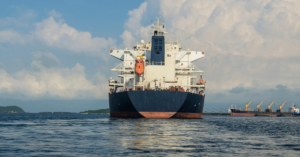
U.S. Declares Houthis A Foreign Terrorist Organisation Amid Red Sea Attacks
March 5, 2025
Recue Ship Saves 32 People Stranded For Days On Oil Platform Without Food Or Water
March 5, 2025

The Baltic Sea has seen an unusual rise in power and data cable disruptions in recent years. Finland’s intelligence chief has acknowledged the increase but suggested that state actors have far more effective means of sabotage than dragging anchors.
Since Russia invaded Ukraine in 2022, the region has reported several cases of power cable, telecom link, and gas pipeline failures.
In response, NATO has increased its presence in the area, deploying aircraft, frigates, and naval drones to safeguard critical infrastructure.
Finland recently released the oil tanker Eagle S, which was under investigation for damaging a power cable and four data cables in the Baltic Sea late last year.
However, Finnish police have yet to reach any definitive conclusions in ongoing investigations into the incidents.
Despite describing the frequency of these incidents as “exceptional,” Juha Martelius, head of Finland’s security and intelligence service Supo, called them a “secondary issue” compared to other security threats in the region.
He pointed to the presence of Russia’s shadow fleet as a much larger concern, stating that these vessels enable Russia to sustain its economy and enhance its warfare capabilities by bypassing international sanctions.
The shadow fleet, a network of vessels operating outside conventional tracking systems, allows Russia to continue transporting oil, arms, and grains despite Western sanctions imposed after the Ukraine invasion.
In a national security review released on Tuesday, Supo reported that dozens of shadow fleet vessels travel through the Gulf of Finland every week to reach Russian oil ports.
Per the report, their ability to evade sanctions is crucial to support Russia’s economy. Martelius stated that with an increasing number of these vessels operating in the Baltic Sea, the likelihood of infrastructure damage has also increased.
While he did not directly link the shadow fleet to recent cable breaches, he said that the presence of so many vessels naturally increases the risk of such incidents.
Despite the lack of clear conclusions from investigations, Martelius warned that Western countries must remain vigilant about potential threats to underwater infrastructure.
Reference: Reuters
Source: Maritime Shipping News


